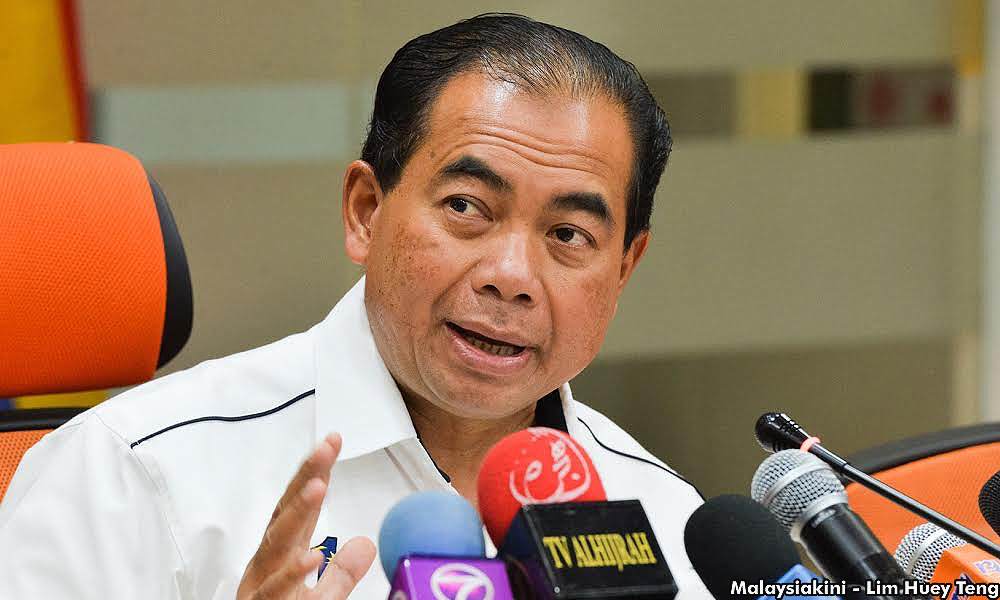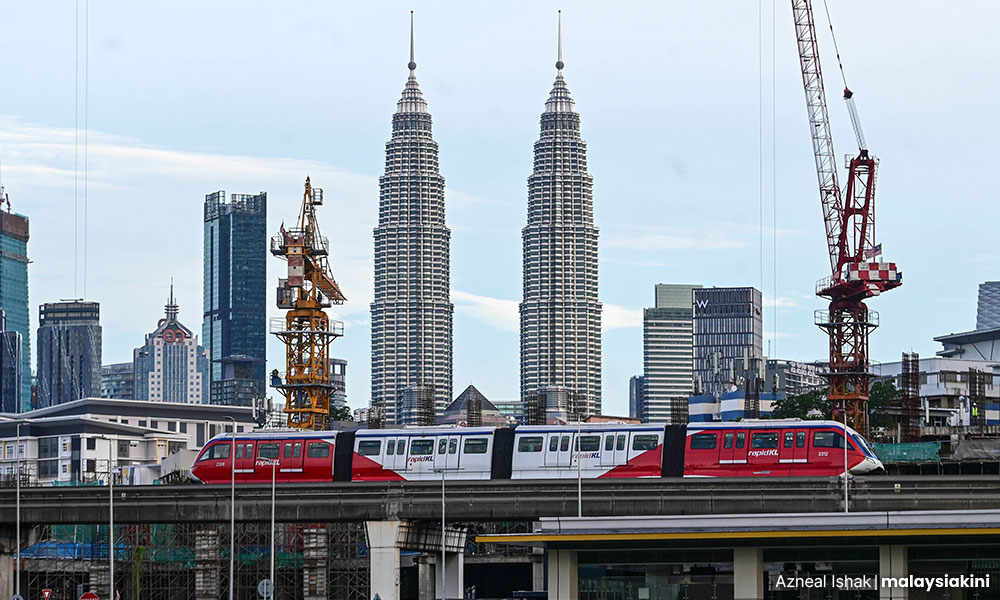Putrajaya’s recent extension of Express Rail Link (ERL) Sdn Bhd’s concession period for transport between the KL city centre and the main airport by another 30 years (until 2059) raises concerns and intrigue.
This comes at a time when the RM100 billion high-speed rail (HSR) link to Singapore, whose cost may balloon to perhaps RM200 billion over the 10-year construction period, is being revived. It throws an extra spotlight on troubled rail projects in Malaysia.
Concerns are raised because ERL is yet another example of how the rail projects, all loss-making or having the potential for huge losses, are being handled in the country.
Further, lengthy extensions are being given without much thought and transparent disclosure of information.
There is intrigue because of the shareholders in ERL. It is 45 percent-owned by YTL Corp Bhd, followed by Lembaga Tabung Haji (36 percent), SIPP Rail Sdn Bhd’s (10 percent) and nine percent by Trisilco Equity Sdn Bhd. SIPP has been linked with Johor’s royalty.
Interestingly, the main works for the Gemas-Johor Bahru double-tracking project valued at some RM9.5 billion are being handled by a YTL Corp-SIPP consortium. It is not known what are the percentage shareholdings of the consortium, but the 192km project is expected to be completed next year.
In September last year, The Edge quoted research house CGS-CIMB as saying that YTL Corp, MMC Corp Bhd, Malaysian Resources Corp Bhd, WCT Holdings Bhd and Berjaya Land Bhd, are the frontrunners for the HSR project. It is possible that YTL Corp will team up with SIPP for this project.
Obviously, there will be a lot of jockeying for the HSR project because of the huge cost of RM100 billion, possibly increasing to RM200 billion over the 10-year construction period. This will be the largest single project ever for Malaysia.
It is therefore extremely important that these capital-intensive projects are carefully reviewed and examined to see that no mistakes are made and whether they are even viable. The ERL project is just one example of those that have failed and should not have been undertaken.
Reports say that if fares are approved, they would be RM126 this year for a trip from the city to KLIA. That indicates that at market rates, most people won’t take the ERL as other alternatives are far cheaper. This may mean that the ERL would fail even if fare increases had been given!
Contract extension
According to Transport Minister Anthony Loke, after seven years of negotiations since 2017, it was decided to extend the ERL concession by another 30 years from 2029 to 2059.
“This is the only extension (of the concession). When the previous government talked about it in 2017, it was just the beginning of the negotiations. It has taken seven years to conclude,” The Edge quoted Loke as saying after he witnessed the signing of a supplementary concession agreement with ERL.

That raises further intrigue because then-deputy transport minister Ab Aziz Kaprawi announced in Nov 2017 that the government has extended the 30-year concession contract of ERL for another 30 years.
According to Malaysiakini, Aziz told the Dewan Rakyat that the extension was given due to the government turning down the firm's request to review the rail fare on three occasions.
He revealed that under the initial 30-year contract, which expires in 2029, ERL is entitled to a fare review every five years.
In the latest development, it is not clear what were the compelling reasons for the extension. It appears as if this was motivated by concerns over some RM2.9 billion in financing woes that the ERL was facing.
According to an article in The EdgeProp in Feb 2017, along with a 30-year extension that ERL is seeking from the government instead of RM2.9 billion in compensation owed to it, the company is also said to be restructuring about RM2.8 billion in debts owed to Bank Pembangunan Malaysia Bhd.
The compensation arose from the government not granting fare increases as promised by the agreement. Further, it looks like the government had provided a guarantee for the soft loan facility which was provided by Bank Pembangunan.
Proof is in the money
The immediate impact of the extension is that the government does not have to pay compensation of RM2.9 billion. However, the charges of RM1 per domestic airport passenger and RM5 per international passenger will remain until 2029, after which market rates will prevail.
My calculations based on annualised projections for 2023 of 47 million KLIA passengers (43 million up to Nov 2023) - 32 million foreign and 15 million local - indicate that the total per year paid out from KLIA passenger collections amounts to around RM175 million.
Over five years until 2029, that could amount to over RM1 billion, given increases in passenger traffic.
If the ERL goes bust, it looks like the government will still have to pay off the loan. The ERL situation and associated figures show that eventually the public and the government will have to bear the viability costs of rail projects because most of these are very expensive and cannot be supported at this stage.

That is the lesson the government must take if it wants to strike a decent balance between building infrastructure and overall costs and benefits. Infrastructure projects cannot be used as money-making tools for the rich at the expense of the many.
Politicians must play their watchdog roles and not be seduced into believing projects will succeed just because interested parties say they will and are willing to reward the political parties and even their members handsomely if they carry out their projects.
We all know who bears that cost - the rakyat, of course. - Mkini
P GUNASEGARAM says it is high time governments were as careful with government money as they are with their own.
The views expressed here are those of the author/contributor and do not necessarily represent the views of MMKtT.



No comments:
Post a Comment
Note: Only a member of this blog may post a comment.